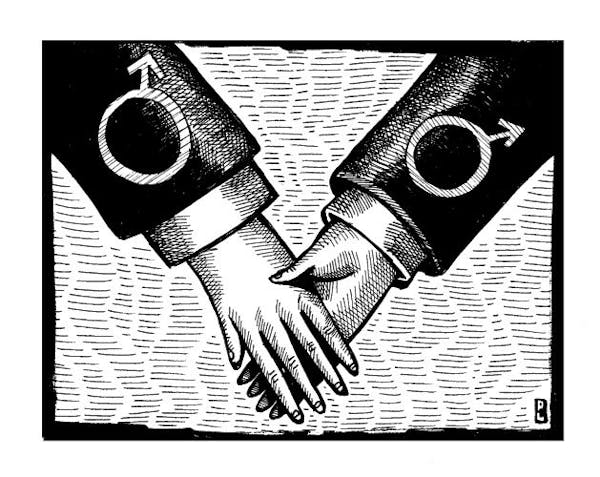It is a cold comfort that Rev. James Livingston is "glad" for Ron Bates' acceptance of himself as a gay Christian, loved and created by God, seeing how he spends most of his commentary insinuating that Bates is an immoral weakling ("Some people can make the gay go away," Sept. 12).
It may be that some find a balance between their conflicting sexual orientation and precept of religious chastity that Livingston espouses, but it has not been the case for members of Livingston's own Courage/Faith In Action group.
As Lavender Magazine's John Townsend showed through his investigative journalism outing the Lutheran antigay pastor Tom Brock last year, Courage/FIA is definitely not working for many.
But if we take that gladness and Livingston's statement that "traditional marriage" was an "imprudent start" for Bates at face value, then we cannot accept the conjecture that his form of marriage is part of some "universal moral law," as Livingston is then condoning a break from that law.
It is certainly part of a religious tradition of which Livingston, Bates, myself and many others are a part, but that tradition has changed many times throughout the years, away from subjugating women and justifying slavery, and most radically when Jesus came down to Earth to absolve sinners and affirm the primacy of love.
If, in a civil society, we can get past controlling the "sex" part of sexual orientation and marriage, then we can celebrate the love between rational, consenting adults, continue to act ethically and stop casting stones willy-nilly.
CARL ATIYA SWANSON, MINNEAPOLIS
* * *
Livingston's commentary is an example of a problematic type of "soft bigotry" that many exhibit toward the LGBT community. Although he purports to show compassion to people with same-sex attraction, it is predicated on the assumption that such attraction is a dysfunction to be suppressed and corrected.
Many who oppose gay rights hide behind supposed religious truths and are unable to explain what actual harm homosexuality poses to society. It is not dissimilar to arguments used by those opposed to the civil-rights movement in the 1960s.
PATRICK FINNEGAN, MINNEAPOLIS
The courage to follow the evidence on transgender care

Republicans wanted a crackdown on Israel's critics. Columbia obliged.


